Mixed Reality presents novel challenges but also opportunities for Usable Security. In our work we are interested in three aspects:
Novel security and privacy mechanisms: Mixed Reality (MR) headsets are enabling a wide range of new opportunities for the user. For example, in the near future users may be able to visit virtual shopping malls and virtually join international conferences. These and many other scenarios pose new questions with regards to privacy and security, in particular authentication of users within the virtual environment. In our work we investigate how such mechanisms can be designed.
Mixed Reality as Research Method: Introducing security and privacy mechanisms into new settings and testing them may pose considerable challenges to researchers. For example, consider a gaze-based authentication system in a smart home where the password consists of looking at the last three used home appliances. While equipping the user and home with the required gaze and object tracking technology requires considerable effort, such a mechanism can easily be prototyped in Mixed Reality. In particular, our work focuses on how we can leverage Mixed Reality to serve as test bed for ecologically valid studies of novel security and privacy mechanisms.
Privacy Considerations: Mixed Reality headsets move sensing close to the human body. With sensors such as eye trackers as well as through telemetry data, sensitive data about the user can be collected and analyzed by different stakeholders, including app developers, platform providers and headset manufacturers. We look into privacy challenges emerging in Mixed Reality as well as how user interfaces can be built that inform users about these challenges and provide means for mitigation.
Publications
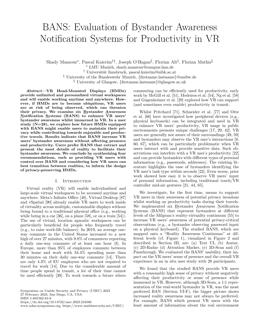 |
Shady Mansour, Pascal Knierim, Joseph O'Hagan, Florian Alt und Florian Mathis. BANS: Evaluation of Bystander Awareness Notification Systems for Productivity in VR. In Proceedings of the Usable Security Mini Conference 2023. USEC'23. Internet Society, San Diego, CA, USA. [Download Bibtex] | |
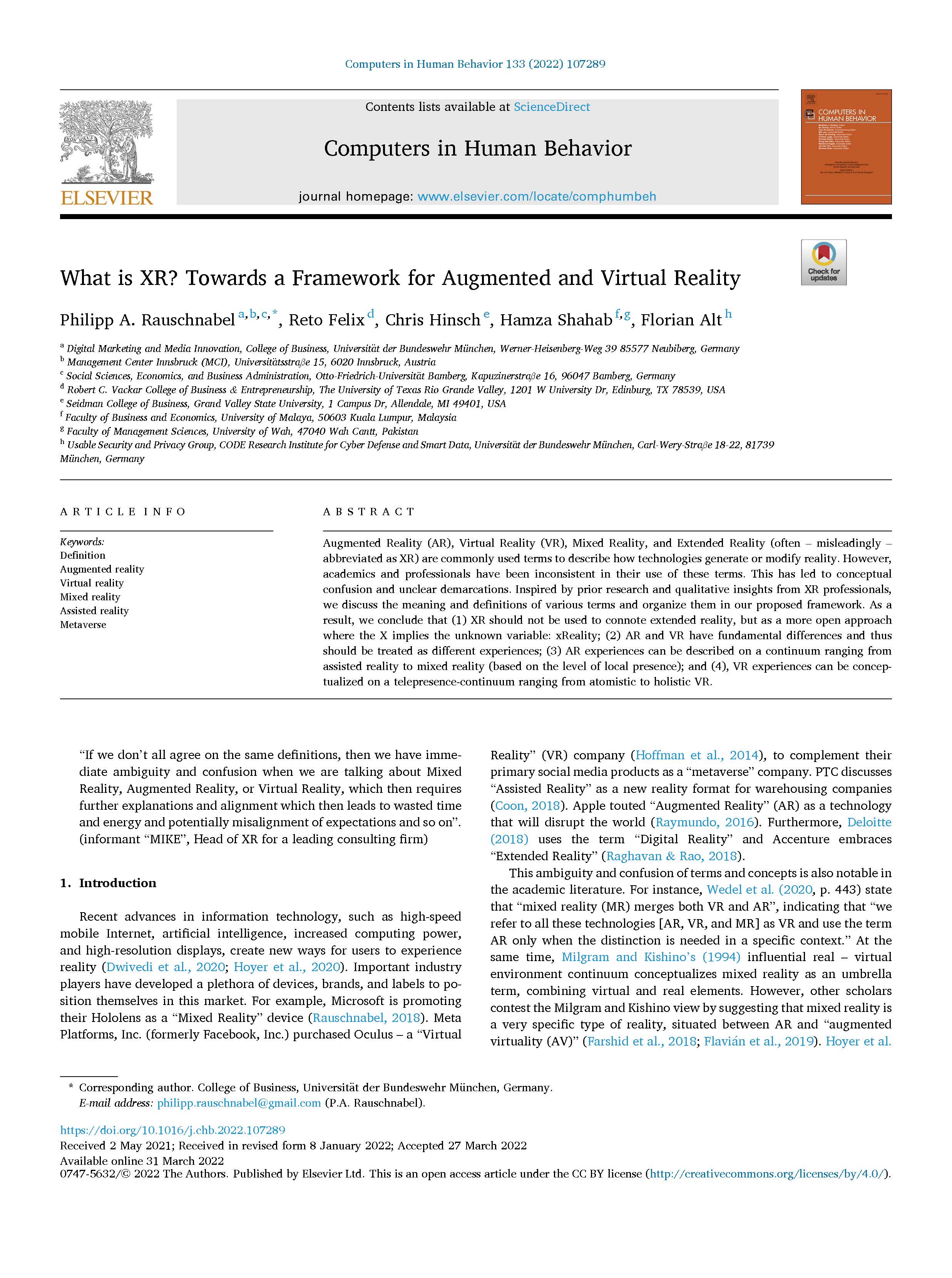 |
Philipp A. Rauschnabel, Reto Felix, Chris Hinsch, Hamza Shahab und Florian Alt. What is XR? Towards a Framework for Augmented and Virtual Reality. In Computers in Human Behavior, 133, 2022, 107289. [Download Bibtex] | |
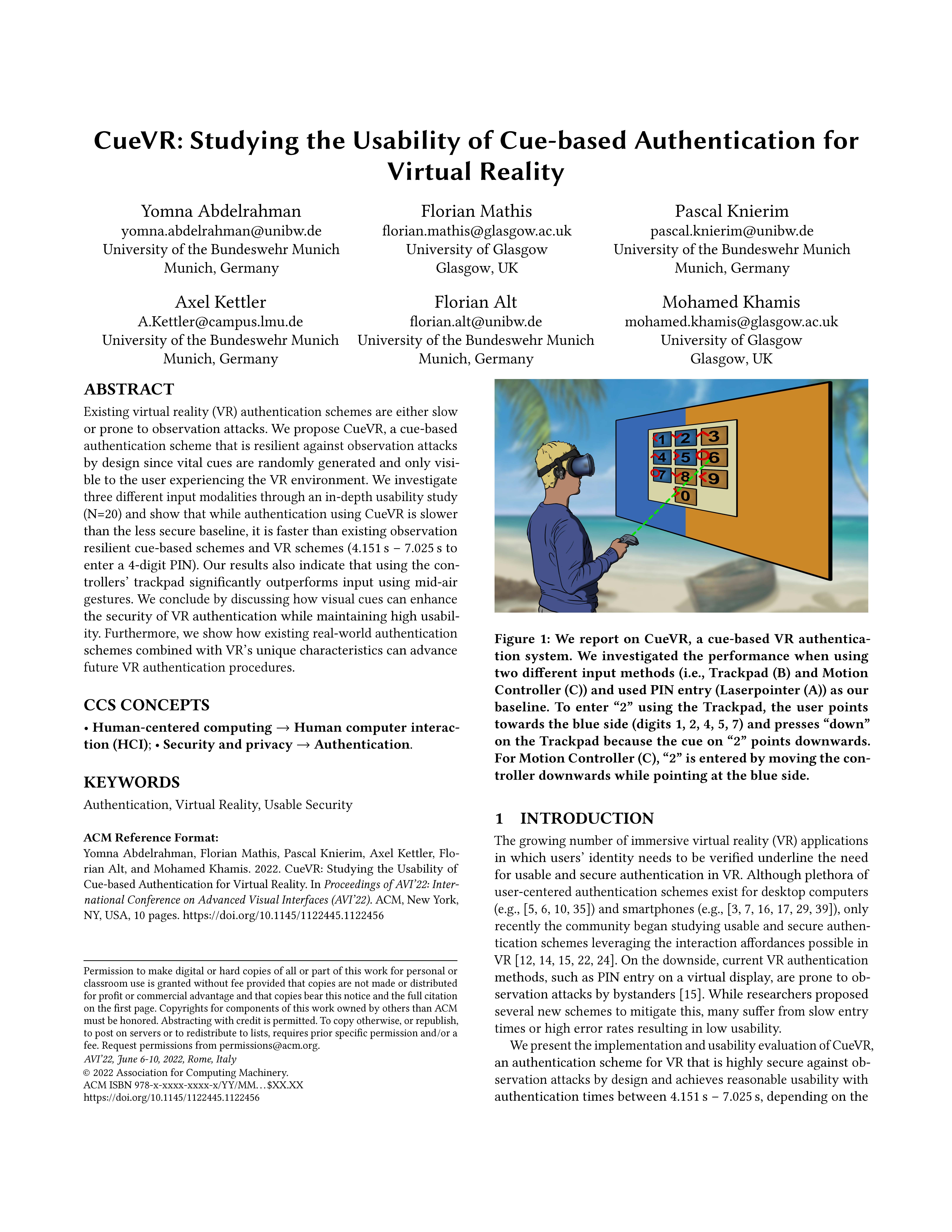 |
Yomna Abdelrahman, Florian Mathis, Pascal Knierim, Axel Kettler, Florian Alt und Mohamed Khamis. CueVR: Studying the Usability of Cue-based Authentication for Virtual Reality. In Proceedings of the International Conference on Advanced Visual Interfaces. AVI '22. Association for Computing Machinery, New York, NY, USA. [Download Bibtex] | |
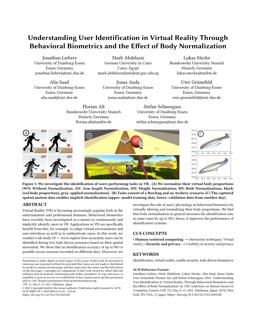 |
Jonathan Liebers, Uwe Gruenefeld, Lukas Mecke, Alia Saad, Jonas Auda, Florian Alt, Mark Abdelaziz und Stefan Schneegass. Understanding User Identification in Virtual Reality through Behavioral Biometrics and the Effect of Body Normalization. In Proceedings of the 2021 CHI Conference on Human Factors in Computing Systems. CHI'21. Association for Computing Machinery, New York, NY, USA. [Download Bibtex] | |
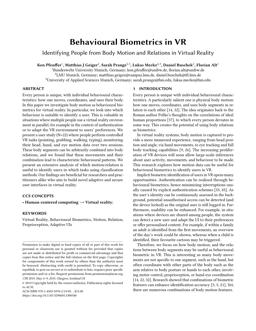 |
Ken Pfeuffer, Matthias Geiger, Sarah Prange, Lukas Mecke, Daniel Buschek und Florian Alt. Behavioural Biometrics in VR - Identifying People from Body Motion and Relations in Virtual Reality. In Proceedings of the 2019 CHI Conference on Human Factors in Computing Systems. CHI '19. ACM, New York, NY, USA. [Download Bibtex] | |
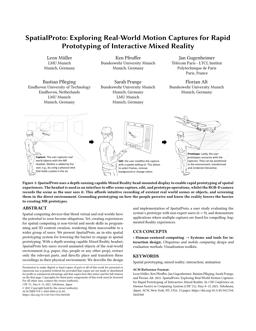 |
Leon Müller, Ken Pfeuffer, Jan Gugenheimer, Sarah Prange, Bastian Pfleging und Florian Alt. SpatialProto: Using Real-World Captures for Rapid Prototyping of Mixed Reality Experiences. In Proceedings of the 2021CHI Conference on Human Factors in Computing Systems. CHI'21. Association for Computing Machinery, New York, NY, USA. [Download Bibtex] | |
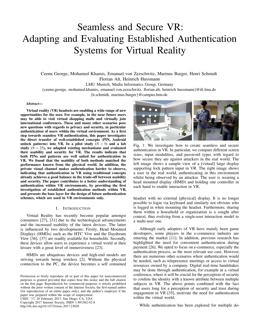 |
Ceenu George, Mohamed Khamis, Marinus Burger, Henri Schmidt, Florian Alt und Heinrich Hussmann. Seamless and Secure VR: Adapting and Evaluating Established Authentication Systems for Virtual Reality. In Proceedings of the Usable Security Mini Conference 2017. Internet Society, San Diego, CA, USA. [Download Bibtex] |